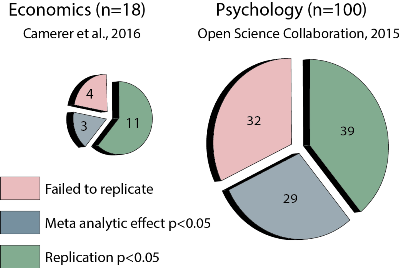Increasingly, studies find that seminal experiments in psychology can’t be replicated. A good summary is available in the Vox post ‘The Stanford Prison Experiment was massively influential. We just learned it was a fraud‘. The title is perhaps a bit exaggerated, as the text describes merely that probably the conclusions were provided in a too extreme manner but may not be entirely wrong, still these facts do come out as generations of lead psychologists change.
 The issue of experiment replication arises in many scientific fields, and it is easy to understand why that may be even more acute in psychology where it is harder to control all parameters, starting with the recruitment of the people who do participate to the experiment (generally university undergraduates, which by itself is quite a skewed representation of society).
The issue of experiment replication arises in many scientific fields, and it is easy to understand why that may be even more acute in psychology where it is harder to control all parameters, starting with the recruitment of the people who do participate to the experiment (generally university undergraduates, which by itself is quite a skewed representation of society).
Of course, this poses questions about what we may have assumed to be scientific fact in the last decades in that field. And of course, textbooks and popular ‘self help’ books will carry on for a long time those inaccurate results and conclusions. This process has always happened through history. Psychology is an area where lots of wrong assumptions have been made with inadequate treatment given throughout the 19th and 20th century to patients. Still, we should take those results as thought provoking and decide whether we want to be influenced by them. It is probable that further study will find that the directions given by previous findings were right, even if the amplitude of the effect might have been exaggerated.
